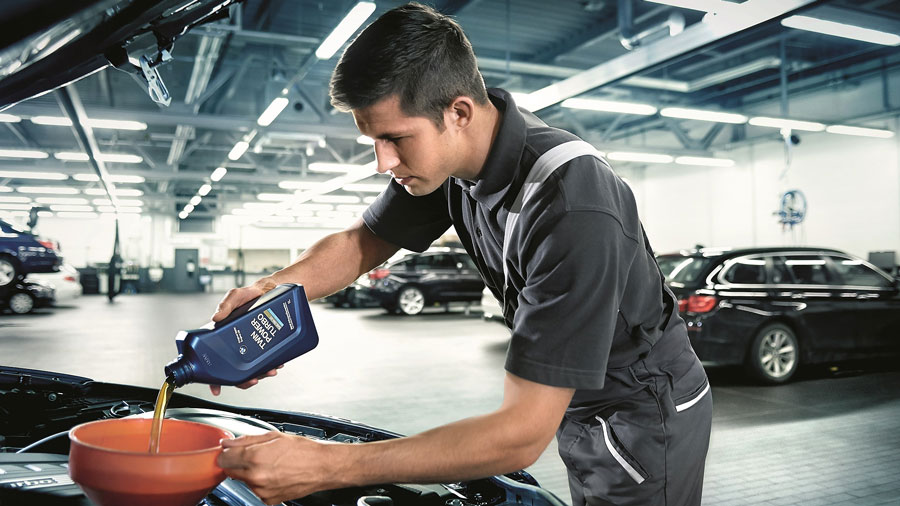
API revising engine oil standards development process
“The development of a new engine oil category is challenging,” says Kevin Ferrick, the American Petroleum Institute’s (API) newly appointed director of Product Programs. Ferrick made this assertion during an update on the progress of the Lubricants Standards Development Review Group (LSDRG), an assembly of industry representatives tasked with overhauling the current standards development process. The group’s purpose is to increase the benefit to stakeholders.
ILSAC GF-6A and GF-6B, the most recently completed passenger car engine oil performance standards, have endured nine long years of development to attain first licensing on 1 May 2020. This protracted timeframe is predominantly due to delays in test development.

However, the issue is not simply the speed of delivery with the existing process. Ferrick highlighted the high cost of specification development, ongoing problems with test hardware becoming obsolete, and a fascination with backward compatibility that amplifies the convolution of new standards.
The current method focuses heavily on the past and immediate term, says Ferrick, providing limited opportunity to anticipate technology needs over the next 10 to 15 years. The API representative also suggested the system discourages OEM (or any stakeholder) participation in resourcing test development due to the costs incurred.
Following the completion of ILSAC GF-6A and 6B and two diesel engine oil standards, API CK-4 and FA-4, we now have a brief pause in specifications development. This provides a “rare opportunity” to improve the existing category development process, says Ferrick. The momentary “lull” allows the industry to focus on a more strategic approach to deliver greater predictability of standards introduction, says Ferrick. If we don’t take advantage of this window of opportunity it will be “difficult to become forward thinking and strategic,” he says.
The API LSDRG was established on July 2017 and has been working tirelessly over the past 24 months to evaluate the current engine oil standard-setting approach. Ferrick’s presentation confirmed the current thinking of the LSDRG and possible process enhancements.
Decoupling test development from category development is a key recommendation. Separating these two components allows test development to concentrate on future technology requirements. Furthermore, undergoing test development in parallel to category development also provides the flexibility to address issues that arise in a more expeditious manner. If the need for a new standard arises, engine tests can be strategically integrated into planned categories.
Ferrick says the LSDRG has spent a fair amount of time determining what would merit a new category. An additional category would be reserved for new performance criteria driven by new tests that address emerging technology challenges, or changes to performance limits on existing or replacement tests that cause chemistry changes. Regulatory shifts that demand chemistry changes would also prompt new category development. Conversely, replacement tests would not necessarily elicit a new category on their own. Replacement tests are those designed to have equivalency tieback to an immediate predecessor.

The review group also identified what constitutes an “urgent need” as part of the category development process. The implementation of a recent supplementary classification API SN Plus was the result of a successful petition from automakers on a need to address the growing threat of low-speed pre-ignition (LSPI) in turbo-charged engines. The current proposal is that an “urgent need” will apply when there is a warranty or field issue across a broad base of OEMs (such as in the case of LSPI), or following regulatory changes. For example, a new substance of concern determined by the U.S. Environmental Protection Agency (EPA) could trigger an “urgent need” for a new category.
LSDRG has completed their preliminary evaluation and recommendations. A proposal has been distributed to stakeholders for feedback, including additive manufacturers, oil marketers and engine manufacturers. Ferrick reiterates that discussions are ongoing. Upon stakeholder agreement, API will broadcast specifics to the wider industry and for feedback.
Ferrick hopes to have secured acceptance of the proposed process from stakeholder groups by the end of 2019. While progress sounds promising, Ferrick stresses that funding remains in a “very unsettled position at this point.” Typically, a significant volume of funding comes from oil marketers, API’s licensing system and the American Chemistry Council (ACC). However, the investment is cyclical depending on the status of the standard development process. API is seeking a more standardised process, to ensure test development continues on a more frequent basis, says Ferrick.








